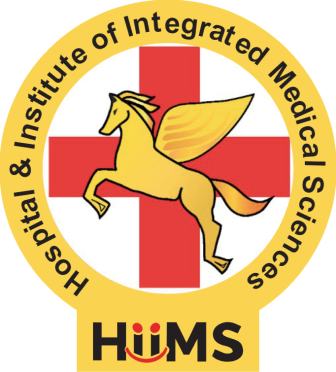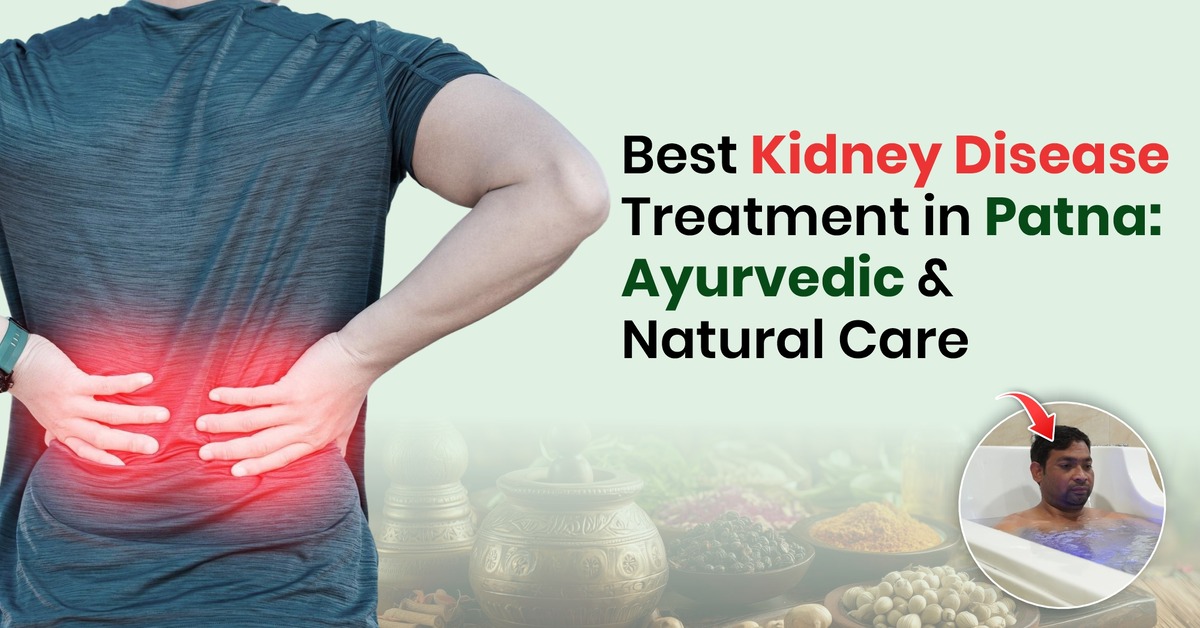Kidneys are small (kidney bean-shaped) organs, but the role they play in our body is very important. Every minute, they filter blood, flush out waste, and keep the balance of fluids in check. Yet, the way today’s lifestyle has changed, with processed food, late nights, stress, and poor hydration, our kidneys silently bear the burden. Many people realise this only when symptoms like swelling, fatigue, or irregular urine patterns show up. At that point, options like dialysis are usually suggested to the patients, which may keep things under control but do not always bring the comfort people hope for.
In cities like Patna, families have started looking for approaches that go beyond temporary relief. This is where Ayurveda steps in with a different philosophy. It views kidney weakness not just as a natural failure but as a deeper imbalance in the body. At HiiMS (Jeena Sikho) Patna, a trusted Kidney care hospital, the focus is on restoring balance through natural methods.
In this blog, we will understand how Ayurveda explains kidney disease, the therapies used, and why many consider HiiMS (Jeena Sikho) as a place for the Best Kidney Disease Treatment in Patna.
Understanding Kidney Disease
What kidneys do
Think of kidneys as natural filters. They clear waste, regulate blood pressure, balance minerals, and maintain overall fluid levels. Without them working smoothly, the body starts collecting toxins, and the effect shows up in every system.
Types and stages
Kidney conditions may appear suddenly, as in Acute Kidney Injury, or progress slowly, as in Chronic Kidney Disease treatment (CKD). Other concerns include glomerulonephritis, nephrotic syndrome, kidney shrinkage, and even kidney stones. In every case, early attention matters.
Warning signs
Common signals are swelling around the feet and eyes, changes in urine colour, frequent tiredness, unexplained cramps, or loss of appetite. People often ignore these, but they are the body’s way of asking for help.
Limits of conventional care
Modern medicine provides dialysis or transplant when kidneys fail, which may control waste levels but does not always bring long-term ease and may lead to harmful side effects. This limitation is why people are turning towards Natural kidney disease treatment through Ayurveda.
The Ayurvedic & Natural Philosophy for Kidney Care
Ayurveda sees the kidneys as influenced by the balance of Vata, Pitta, and Kapha. Weak digestion creates Ama (toxins), which block body channels (Srotas) and disturb kidney filtration. Rather than only tackling symptoms, Ayurvedic treatment for kidney disease works on root correction, cleansing toxins, reopening channels, and nourishing the tissues.
The concept of Rasayana or Rejuvenation is important here. It refers to the natural renewal of the body, giving the kidneys a chance to regain strength instead of just managing decline.
Key Ayurvedic Treatments & Therapies for Kidney Health
Panchakarma Detox
The classical five steps of Panchakarma are:
- Vamana (therapeutic vomiting),
- Virechana (purgation),
- Basti (medicated enema),
- Nasya (nasal therapy),
- Raktamokshana (bloodletting).
These methods, under an ayurvedic practitioner’s supervision, help reduce deep-seated toxins and lighten kidney load.
Specific therapies
Techniques like Snehana (oleation), Swedana (sudation), Abhyanga (oil massage), internal oleation, and warm fomentation help relax channels, improve circulation, and release waste naturally.
The GRAD System
One of the unique approaches followed at HiiMS (Jeena Sikho) Patna for kidney care is something called the GRAD system. It may sound technical at first, but when explained step by step, it is actually simple to understand:
- Head Down Tilt (HDT): Lying at a certain angle so gravity improves kidney blood flow under the guidance of an expert. Because gravity naturally pushes more blood toward the kidneys. Better blood flow means the kidneys get more oxygen and nutrients, and this encourages them to work with less strain.
- Hot Water Immersion (HWI): Here, the person sits in warm water maintained at a safe temperature (around 42°C). When the skin is surrounded by warm water, the skin pores open up, and the body starts to sweat. This process works like activating the “third kidney”, which is skin. Sweat carries out extra fluid and toxins that otherwise burden the real kidneys.
- DIP Diet: A unique eating pattern where Plate 1 (fruits or raw vegetables) is taken first, followed by Plate 2 (millets or light meals) without a gap between the two plates. Breakfast, lunch, and early dinner are structured around this rule.
Herbal remedies for kidney health
Certain herbs are widely used in this case with care:
- Punarnava for swelling and fluid balance,
- Gokshura for urine flow,
- Varuna for clearing pathways,
- Shilajit for overall vitality.
These herbal remedies for kidney health are guided strictly by experts to avoid any adverse effects.
Complementary Natural & Lifestyle Support for Kidney Health
Diet and routine play a crucial role. Patients are guided to take low-sodium meals, limit potassium and phosphorus, and prefer fresh local foods. Antioxidant-rich fruits, light soups, and controlled hydration help kidneys function with less pressure.
Yoga, light walks, zero-volt therapy, which is basically barefoot walking on grass. and breathing practices improve circulation and blood pressure stability. Restful sleep and stress management form part of the daily routine (Dinacharya). Avoiding excess salt, processed foods, and alcohol is equally mentioned.
Why Choose HiiMS (Jeena Sikho) Patna for Kidney Treatment?
People in Patna look at HiiMS (Jeena Sikho) as more than just a Kidney care hospital. Here are five aspects that stand out:
- Holistic assessment: Every patient’s stage, condition, and lifestyle are considered.
- Integrated therapies: Panchakarma, GRAD, DIP diet, and herbal care are combined.
- Personal attention: Experts guide step by step, with constant supervision.
- Safe approach: No harsh methods; everything is tailored to the person’s body.
- Environment: Calm surroundings and supportive staff make the health journey easier.
These points together explain why many regard HiiMS (Jeena Sikho) as a place offering the Best Kidney Disease Treatment in Patna.
Conclusion
Kidney health is too precious to be ignored. Through Panchakarma, the GRAD system, the DIP diet, and lifestyle, combining Ayurvedic treatment for kidney disease, HiiMS (Jeena Sikho) Patna offers a path that feels gentle yet effective.
If you or someone you know is facing kidney challenges, do not wait for the stage when options become limited. Early attention, guided diet, and natural care can make a real difference.
Visit HiiMS (Jeena Sikho) Patna to explore how a balanced, integrative approach can bring comfort and stability. Many families have already taken this step, and now, the choice is in your hands to discover the Best Kidney Disease Treatment in Patna.
FAQs
Q1. Can Ayurvedic treatment reverse kidney damage?
It works by slowing growth, cleansing toxins, and supporting function through Ayurvedic treatment for kidney disease.
Q2. Is Ayurvedic treatment safe for kidney patients?
When done under expert guidance. The therapies are gentle, natural, and mostly free from side effects.
Q3. How long until results appear?
Changes from Chronic kidney disease treatment through Ayurveda may be noticed over weeks to months, depending on the person and the condition.
Q4. Do I still need conventional tests and monitoring?
Tests and monitoring with the machines may be required as they track progress.
Q5. Is Ayurvedic kidney care expensive compared to regular treatment?
It’s comparatively more affordable in the long run because it focuses on lifestyle and natural therapies rather than repeated costly procedures.

